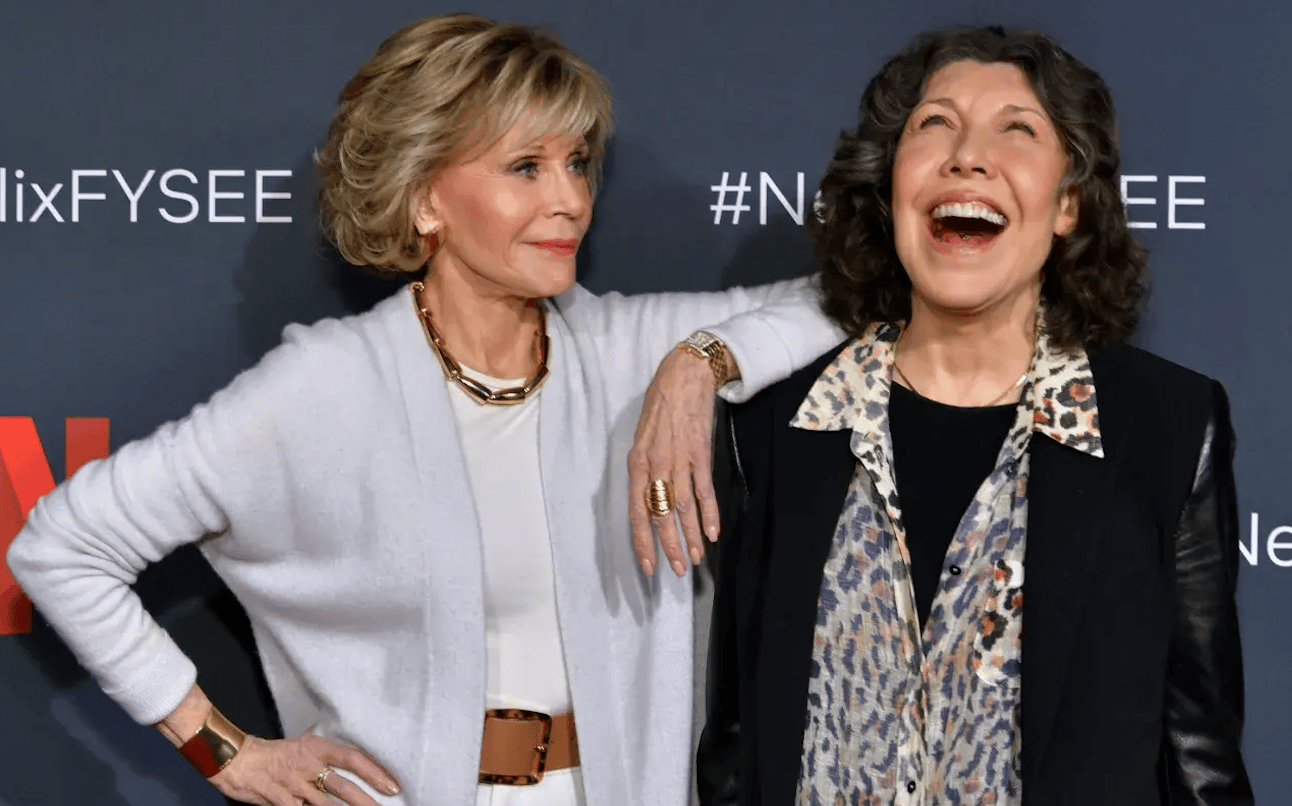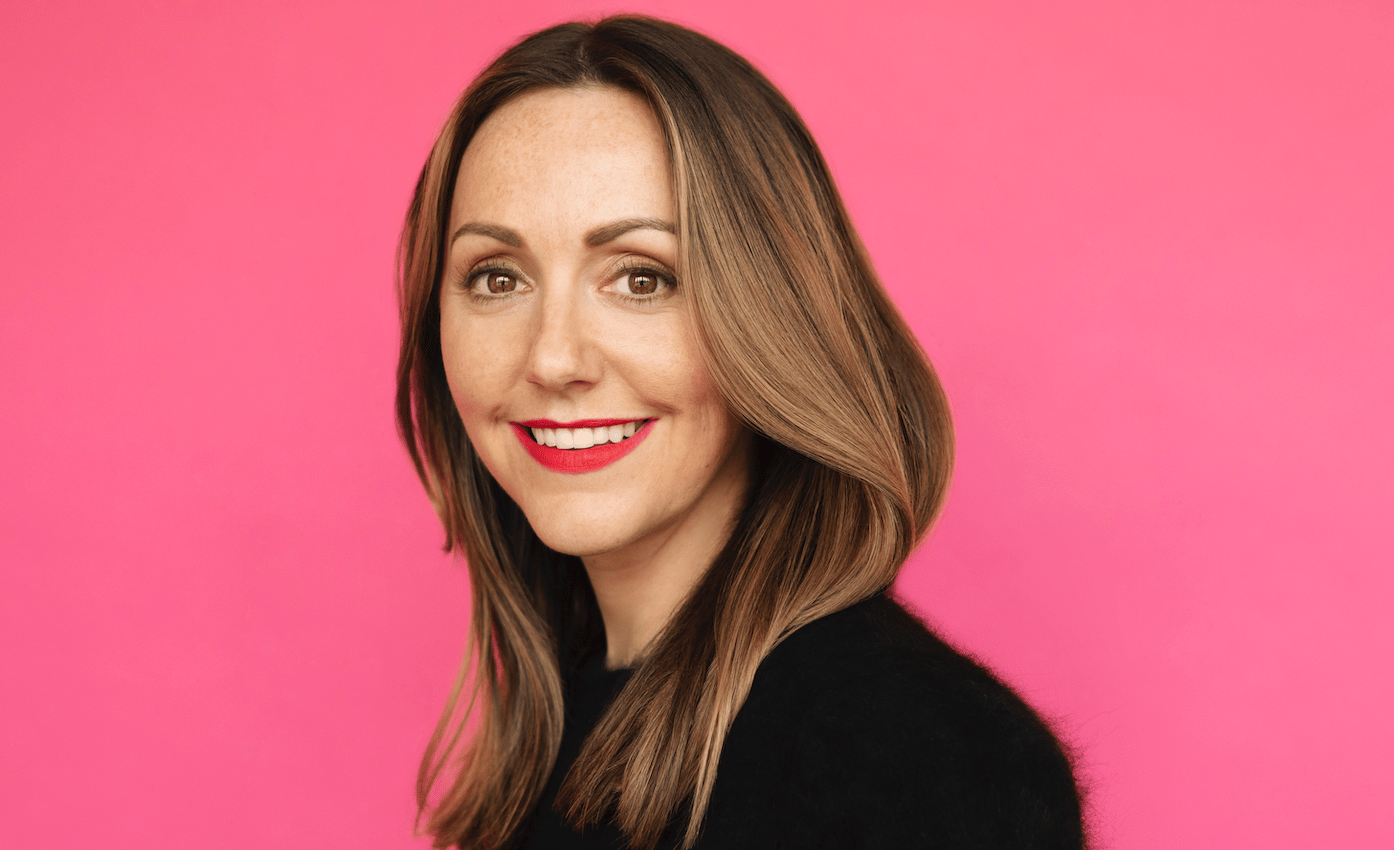Postmenopausal women are the key to our survival
Research hypothesis flips the script

WHAT’S ON DECK
Tell Me More: “What if the point of menopause is to break up with our former self?”
Troublemaker Spotlight: Hannah Perry, Chief Culture and People Experience Officer at Novartis
Dear FQ: I think my manager is playing favorites
Poll the Pack: Have you experienced the impact of a great manager?
TELL ME MORE
Humans are one of only three species that experience menopause

How, from an evolutionary perspective, do we as humans continue to pass along information? According to Dr. Roy Casagrande, women have evolved to no longer reproduce at a certain age but continue to live longer to educate younger generations.
That’s the idea that scientists around the world have posited in “the grandmother hypothesis,” suggesting that female humans live far beyond their reproductive years to ensure the survival of their lineage. Beyond caregiving, grandmothers provide priceless wisdom and experience, transferring knowledge about survival, social structures, and cultural traditions. This extended post-reproductive lifespan has given human communities an evolutionary advantage by strengthening intergenerational bonds and facilitating the sharing of essential skills and stories.
In a broader sense, it’s a testament to how humanity has developed unique mechanisms, rooted in relationships and education, to preserve and pass down collective knowledge, ensuring the continuity of culture and progress. Grandmothers, as the theory suggests, are at the heart of this ❤️
In this light, menopause isn’t a consequence of aging, it’s a positive evolutionary adaptation. “There’s no reason in the world to evolve grandmas,” says researcher Dr. Roy Casagranda, “unless women in menopause provide something that transcends the ability to create life. And when you think about it, what could be more powerful than creating life? The answer: education.”
For many of us, the silence around aging and menopause is real, and it carries weight. For too long, these years have been framed not as a new chapter, but as a finish line. “I felt that when I was told I was close to menopause,” says Naomi Watts, “I’d been branded an unproductive, barren person. The shame bled into all parts of my life.”
To complicate matters, menopause is chronically misdiagnosed, under-treated and under-reported. Despite affecting half the world's population, many healthcare providers lack the expertise to effectively manage women's symptoms.
The bright light on the menopausal horizon? Outspoken champions are leading the way. Celebrities are speaking up, normalizing the conversation, and helping women everywhere step out of the shadows and feel less alone.
Naomi Watts, Halle Berry, Elle Macpherson, and many more have taken on the mission of menopause re-education with full force. Watts with her menopause beauty company, Stripes Beauty, as well as her 2025 bestselling book, Dare I Say It: Everything I Wish I’d Known About Menopause. Berry recently founded a menopause care company, Respin Health, which provides signature care plans, coaching and connections for women at every phase of menopause. And Macpherson’s company, WelleCo, has a line of nourishing beauty and wellness supplements for energy and resilience through every stage of menopause.
These women are leading an impactful mindset change around menopause. Says Watts, “What if the point of menopause is to break up with our former self? It might not be easy-breezy, but you have to embrace this new person, your present self.”
“Sixty is just two years away for me,” says Berry. “I feel confident. I feel strong. I feel sexy. I’m wiser and smarter than I ever was.” Her message resonates: Women control more than half of U.S. household wealth, with menopausal women making up the majority. Forget “fading away,” this is about stepping into power.
The conversation is changing and that’s thrilling for all of us, not just women in middle age. If we’re lucky, every one of us will one day reach menopause. We need to celebrate those women and leaders on the cutting edge, making the dialogue around this once-taboo subject commonplace, uplifting, and inspiring.
Employers and health care organizations are even beginning to provide menopause-related benefits. Those investing in this care are making big strides:
15% of U.S. employers now offer menopause-specific benefits (up from virtually none just a few years ago), including flexible work arrangements, virtual care access, and even designated paid leave for menopause care.
Forward-thinking companies like Bank of America, Microsoft, and Adobe have implemented comprehensive menopause support programs, recognizing that women 45+ are the fastest-growing demographic in the workforce.
It’s time to rethink this critical phase in a woman’s life. Let’s replace any lingering stigma with the truth: Women in menopause are evolving into their best, most powerful selves. Let’s own it.
TROUBLEMAKER SPOTLIGHT
Hannah Perry, Chief Culture and People Experience Officer at Novartis

Hannah Perry is a force for cultural transformation, inclusion, and innovation. With 15+ years at Novartis, she has led people-centric change that makes work more impactful, sustainable, and human.
At the forefront of Novartis’s culture transformation since 2017, she has designed programs that rewire how people experience work, turning values like Inspired, Curious, and Unbossed into everyday behaviors. Her approach blends culture and business strategy, proving that when people are at the center, performance follows.
A designer at heart, Hannah crafts human-centered experiences that spark belonging, innovation, and growth. From global communities and inclusive campaigns to shaping agile ways of working, her work has positioned Novartis as not just a place to work, but a place to thrive. Driven by purpose and passion for nurturing talent, she continues to push boundaries, champion underrepresented voices, and unlock performance through the company’s greatest resource: its people.
FQ: What’s the worst career advice you’ve gotten?
“Be less you.”
Early in my career, someone told me to dial down my energy, speak only when spoken to, blend in, wear the “uniform,” and don’t challenge the leadership. Translation: Fit the mold and do as you’re told.
For a short while it totally knocked my confidence and made me question how authentically I showed up. A far better take would’ve been, “Channel your energy and intention.” But “don’t be you”? I can’t subscribe to that...hard pass.
What’s the best piece of non-obvious career advice you’ve gotten?
Your self-talk is the most important conversation you have. How you speak to yourself changes how you show up, how you shape your intentions, and the impact you believe you can make.
A few others I love:
Fill your seat. You’re in the room for a reason, use your voice and your judgment.
You teach people how to treat you.
Boundaries aren’t rude; they’re self-care and we all need that!
What was a “heartbeat moment” for you in your career?
Early in my career I was running a women’s refuge program, uniting people to do something meaningful and discovering the power of community. It taught me that giving to others often provides meaning and purpose; it fills up your cup, too.
That experience showed me that when we honor what makes us uniquely human and intentionally create space for it, we strengthen connections, build community, and enable people to thrive.
Who is one person you’d love to give flowers to from your career that influenced your journey?
It’s impossible really to pick one, but I’d definitely send bright pink peonies (my favorite) to the many colleagues who propped me up in moments of self-doubt. When working in production many moons ago, one amazing colleague helped me in a tricky spot, and their act of kindness changed how I went into a super important meeting. I still think about their words today: “Go for it, be you, be kind and always be bold.”
It’s the everyday encouragement that matters most.
Where have you caused trouble?
Early on, I learned to address things that others tiptoe around. If you believe in something, influence the system, speak up, and be part of the change even if it ruffles feathers.
Once, when presenting to very senior leaders, I skipped the tidy pros / cons deck and played raw recordings from colleagues describing daily pain points. Then I asked, “How many of us knew this?” Silence. The goal wasn’t necessarily discomfort (although I’m sure I caused some), it was transparency, because only when we know can we start to adjust and change for the better.
The questions I keep close and share with others are: “Am I role-modeling the change I talk about? Is ego the enemy? Am I creating conditions for people to be unstoppable?” That’s the kind of ‘trouble’ I’ll always sign my name to.
Want to nominate a “Troublemaker” you admire? You can do so here.
DEAR FQ
Your burning career questions answered

Vanessa Buenger of The Female Quotient weighs in:
For the purpose of this advice, let's assume you've done your due diligence and know for certain (with clear, undeniable facts) that there's favoritism at play. First, I’m sorry. That's no fun, and it's incredibly unfair.
Second, remember this: You will always be your biggest cheerleader and champion. So never let up on celebrating your wins out loud.
When you do something you're proud of, share it.
When you have an idea in a meeting, speak up and make sure it's heard.
Get into the habit of keeping a log or document of your accomplishments, the areas you've grown in, and the times you've really stepped up to make a difference.
At the end of the day, you can't control how your leaders feel about other colleagues, but you can control how you show up and the work you produce. When you document it all, you'll have a factual record to lean on when it's time to make your case.
Always remember that your mental health matters. If the environment becomes truly uncomfortable despite your best efforts, take care of you first.
P.S. Got a burning career question? Serve it up here to Dear FQ to score advice from a powerhouse leader in our network.
POLL THE PACK
Career support starts at the top
There’s a clear hierarchy in what people value most for professional growth and it all starts with managerial support. 60% of employees identify a great manager as a critical factor in their success. Anyone who’s had the good fortune of a great boss knows they’re more than task-masters; they’re coaches, motivators, and often the bridge between talent and opportunity.
Nearly a quarter of employees credit a strong community of colleagues as key to career development, underscoring the power of a supportive work environment. Connection isn’t just good for culture, it can shape long-term success. It truly takes a village.
The pattern is clear: People matter. Relationships matter. And when organizations invest in both, they unlock the potential of every employee.
Change gets easier when we go through it together.
Xo,
The FQ
Don’t forget to let us know what you think of The FQ Newsletter here.
REFER A FRIEND
Invite your network. Unlock FQ rewards.
We’re committed to making sure everyone has the opportunity to succeed in the workplace. Invite your friends to subscribe to The FQ Newsletter—because when more of us have access to insights and resources, we all advance together. Plus, the more you refer, the more rewards you unlock!
How It Works
Every subscriber receives a unique referral link.
Share it via email, LinkedIn, social media, or text.
Unlock rewards as your friends subscribe.
10 Referrals – 🫘 Coffee on us—because great conversations start over coffee
25 Referrals – ☕ A mug from The Female Quotient’s merch collection
50 Referrals – 👕 A sweatshirt from The Female Quotient’s merch collection
100 Referrals – 👥 A one-on-one coaching session with Shelley Zalis, CEO of The Female Quotient
500 Referrals – ✈️ A trip to join us at a FQ Lounge™ event

You currently have 0 referrals, only 10 away from receiving Coffee On Us.
Or copy and paste your unique referral link to share: https://newsletter.thefemalequotient.com/subscribe?ref=PLACEHOLDER
